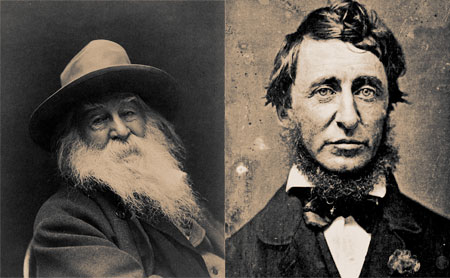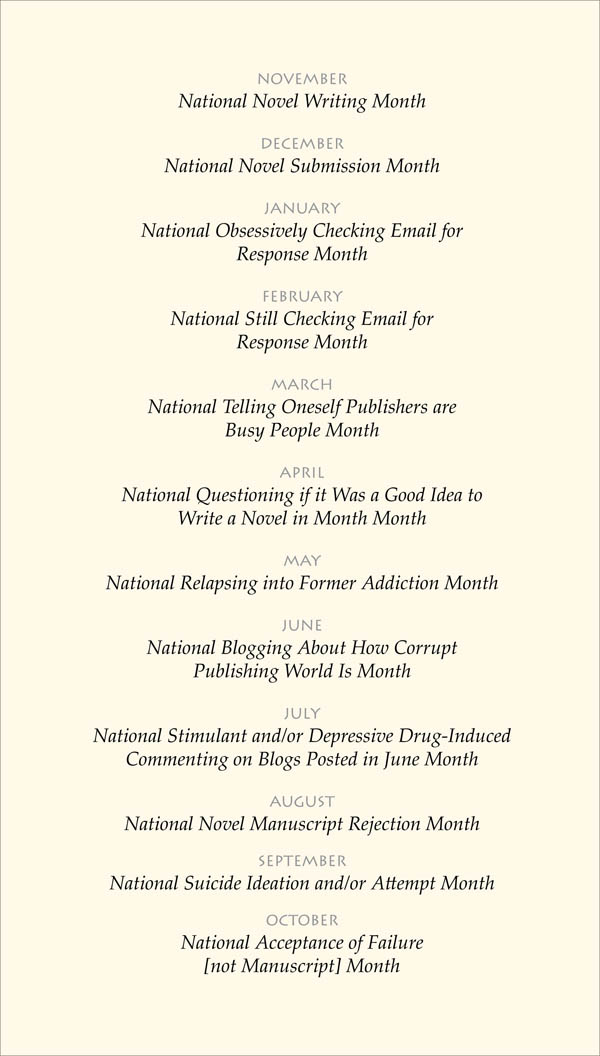{LMC}: What We Talked About This Week in LMC (And Last Week Too)
Patricia Lockwood created an illustration of one line from Sean Kilpatrick’s The All Encompassed Drowned.
James McGirk wrote a reflection on Czar Gutierrez’s Bombardier.
Mike Meginnis wrote a comprehensive analysis of the assembly of New York Tyrant 3.2.
We had a live chat with New York Tyrant editor Giancarlo DiTrapano. Sorry you missed it. Drinking was involved, as was music by The Smiths, and many unsolved mysteries were solved.
Alex V. Cook wrote a reaction to the letter Breece D’J Pancake wrote but did not send to his mother before his 1979 suicide.
On the Google Group, we’ve been talking about matters of gender, women’s writing, why women don’t submit, how to read experimental work and Matt Bell’s An Index of How Our Family Was Killed. There’s more, but you have to join to know.
Speaking of Matt Bell, next we are reading the November issue of The Collagist, which debuts on 11/15. At the end of the month, we’ll do a live chat with Matt and who knows what will happen.
Historical Shop Talk

A letter from H.D. Thoreau to Unitarian minister H.G.O. Blake, mostly about the subject of Walt Whitman:
Dec. 7, 1856
That Walt Whitman, of whom I wrote to you, is the most interesting fact to me at the present. I have just read his 2nd edition (which he gave me) and it has done me more good than any reading for a long time. Perhaps I remember best the poem of Walt Whitman an American & the Sun Down Poem. There are 2 or 3 pieces in the book which are disagreeable to say the least, simply sensual. He does not celebrate love at all. It is as if the beasts spoke. I think that men have not been ashamed of themselves without reason. No doubt, there have always been dens where such deeds were unblushingly recited, and it is no merit to compete with their inhabitants. READ MORE >
book or else specter
Calling for a new type of submission: I’m starting this project, book or else specter, which basically consists of aphorisms on potentially any topic (sports, cars, Keynes, hunting, another aphorism). First and only aphorism so far is our own Jackie Wang, who I hung out and had a lot of fun with last week here in Florida. Aphorisms can take any form and reach any length. Either submit by emailing me (alecniedenthal@gmail.com) or through the Tumblr.
I don’t know, I think the aphorism is a form that demands new life and new flesh. (Maybe it’s like I’m asking you to donate to my charity or something.) If we’re too much measure and precision, where is the condensed flash and dissolve.
We are Jack the Ripper, I mean happy weekend.
Today a little girl called me a giant.
Three Things of Interest
1. Gina Frangello is the new Writer in Residence at Necessary Fiction where this month, she will be featuring a series of stories, Body Parts. The first installment, Hole, is quite stunning.
2. How to make the Internet very very angry: 1) Steal the work of a writer, publish it in your magazine, and when said writer addresses the copyright infringement, say that writing on the Internet is public domain and tell the writer they should thank and compensate you for stealing and “editing” their work 2) Have word get out via popular writers like Maud Newton, John Scalzi, Neil Gaiman, and countless others. Even Gawker! NPR is talking about it too! A round up, here. 3) Sit back and relax. You have to feel a little bad for the hapless editor who unwittingly stepped into a very angry hornet’s nest because the pile on taking place is a bit… shocking.
3. Dzanc Books has launched an e-book club where you will get 11 books for $50 . If you’re looking for some good e-reads, consider signing up.
{LMC}: A reaction to the letter Breece D’J Pancake wrote but did not send to his mother before his 1979 suicide
If you would like to have the full PDF of NY Tyrant 8 so you can participate in this month’s LMC discussions, get in touch with me. But still, when you buy a literary magazine, an angel gets its wings.
This little nest of a letter, built up of hollow bones and shed feathers made me want to go read everything by Breece D’J Pancake, which is relatively easy to do since there’s just the one book; The Stories of Breece D’J Pancake (Atlantic-Little, Brown, 1983) Each tale therein unfolded with the same peripheral soul with a rainbow of great country names, walking in the woods, half-seducing a woman, finding their manhood an effective if clumsy tool for survival.
The stories, culled mostly from The Atlantic Monthly, are trance-inducing, dream-things. People and objects move by cresting, just clearing the ditches and hills in which they hide. In one, the way headlights came over the rise caught the man who was in turn being watched by a rabbit was like being caught in actual headlights yourself.
Libraries are churches, style is content, ideas are around.
People say mathematicians have wild dreams.
What I want to know is do they have better sex.
Einstein on the beach. With a lady.
Buckminster Fuller pointed at this idea:
We might be beamed ideas from outer space.
And that this is where we get what we call intuition.
The other day I saw a high speed chase, in progress
loudly near a lauded liberal arts college, for women.
Baby, I Was Faking the Whole Time
David Bazan’s approach to lyric writing is often to appropriate attitudes, functional approaches to life, or social or interpersonal behaviors which are almost always unarticulated, unacknowledged, or in many cases wholly or partially unknown to the person in whose consciousness they take up residence, and to literalize them into a first-person dramatic monologue of counterculturally brutal honesty. Here is one example, in which a husband (or possibly a wife) admits to his or her spouse that “I never wanted you /I never wanted to / Although I told you I did / In front of witnesses,” and concludes: “I know you never suspected / Because I never said / Baby, I was faking the whole time.”


